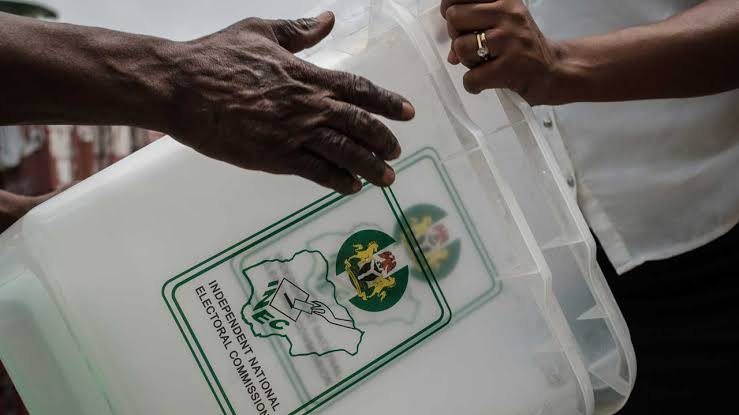The National Assembly and the Presidency, according to the Independent National Electoral Commission (INEC), are responsible for developing a new electoral framework ahead of the 2023 general elections.
INEC Commissioner Festus Okoye revealed this on Monday in Abuja at the Nigeria Civil Society Situation Room National Stakeholders’ Forum on Elections.
In terms of the electoral management body, he claimed that INEC was still using the old electoral law framework because the new one was not yet ready.
He claimed that the new election framework had some fundamental flaws. One of the major concerns of the electoral management body is the deepening of democracy through the application of technology.
Okoye said that INEC, from the beginning, made a determination that it is important in the national interest to reduce human interference in the electoral process, and based on that, decided to deepen the use of technology in the electoral process.
“That explains why as of today, political parties file particulars of their nominated candidates electronically, they no longer come to our office with documents.
“As of today, domestic election observers, international election observers and the media apply for accreditation electronically.
“INEC is the first electoral management body in Africa to introduce online voter registration exercise and based on this you can see the astronomical rise in the number of young persons who have done their pre-registration before capturing their biometrics.
“Now, what is it in the new electoral bill that is different? Prior to this particular period, the uploading of polling units results was just for public views.’’
Okoye said that the second issue related to internal democracy in political parties had been very challenging and difficult to handle.
He said that looking at the existing electoral legal framework, two methods of voting in primary elections have been imputed there, direct and indirect primaries.
Okoye said that parties have conducted direct primaries prior to this particular period and the INEC had monitored both direct and indirect primaries.
“What we must set aside is that the success or otherwise of the conduct of direct primaries resides with the political parties because it is the political party that will hire the venue for their own primaries.
“INEC will not hire venues for them, they are going to print their own ballot papers and result sheets, they are going to get their own ballot boxes because we gave them ballot boxes in the past and most of them didn’t return them.
“We are not going to give them ballot boxes this time around; they are the ones who are going to secure the electoral environment, our function is to monitor what they have said they are going to do.
“Not until the political parties bring out their own design which the new electoral framework says they should bring out, there is no way we can put cost or even personnel to the number we are going to deploy,” he said.
